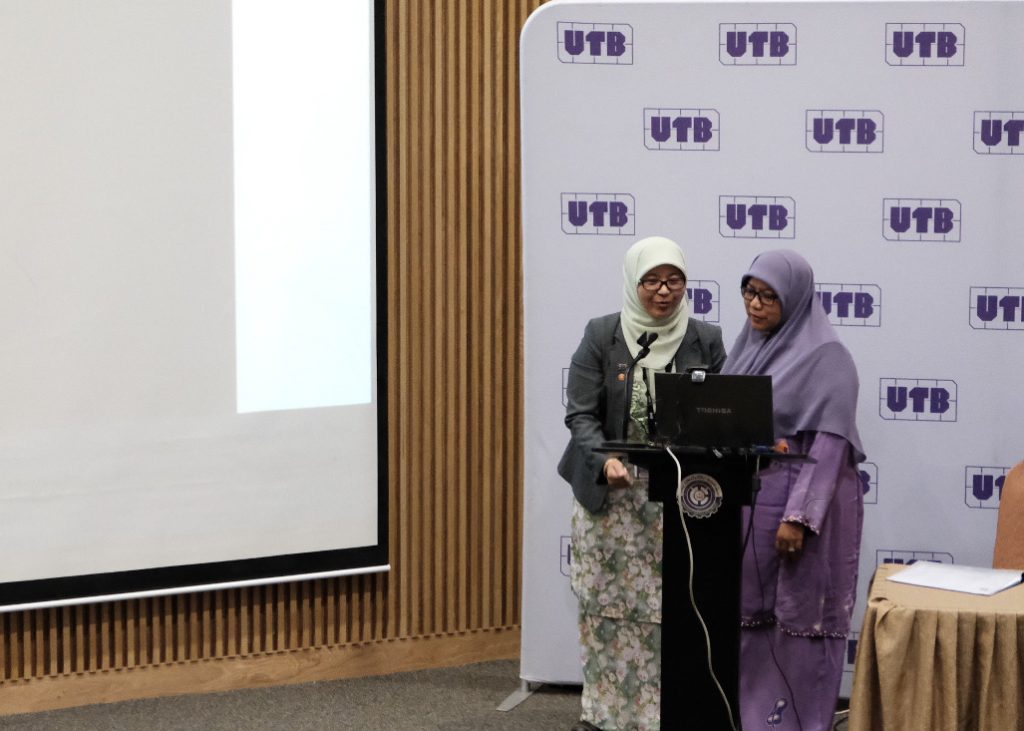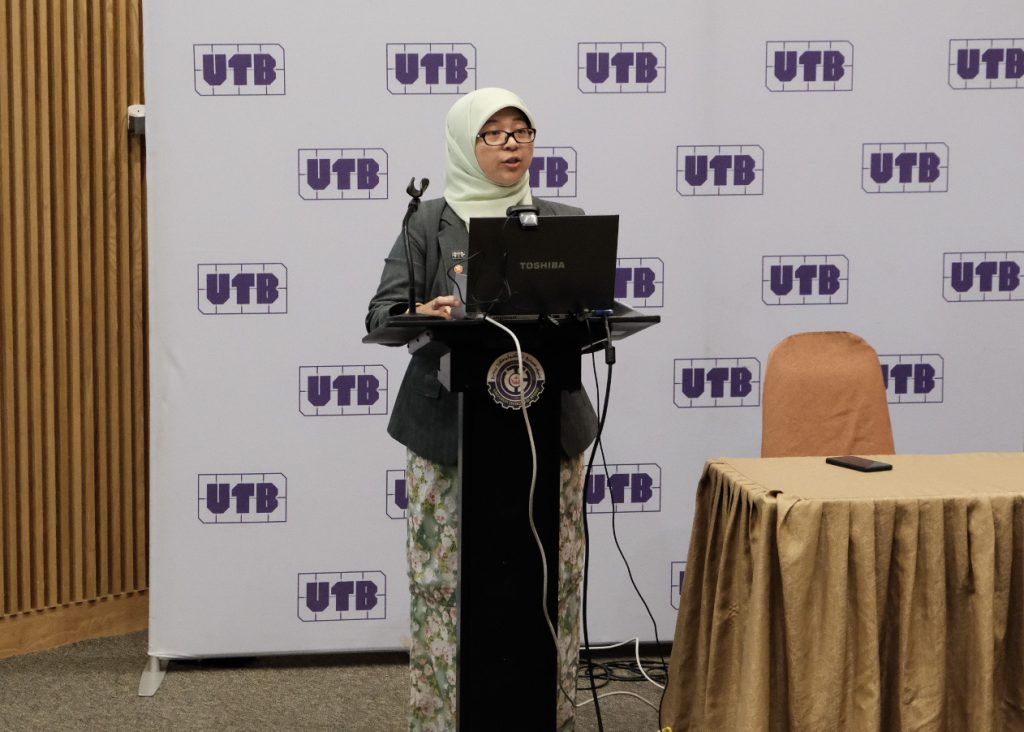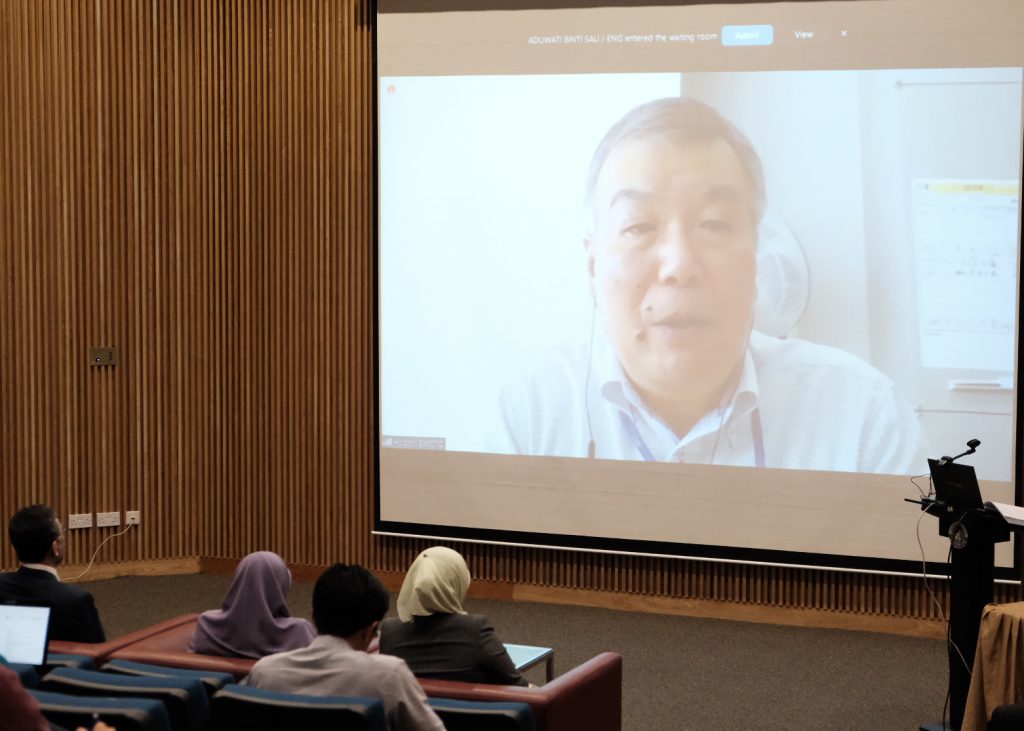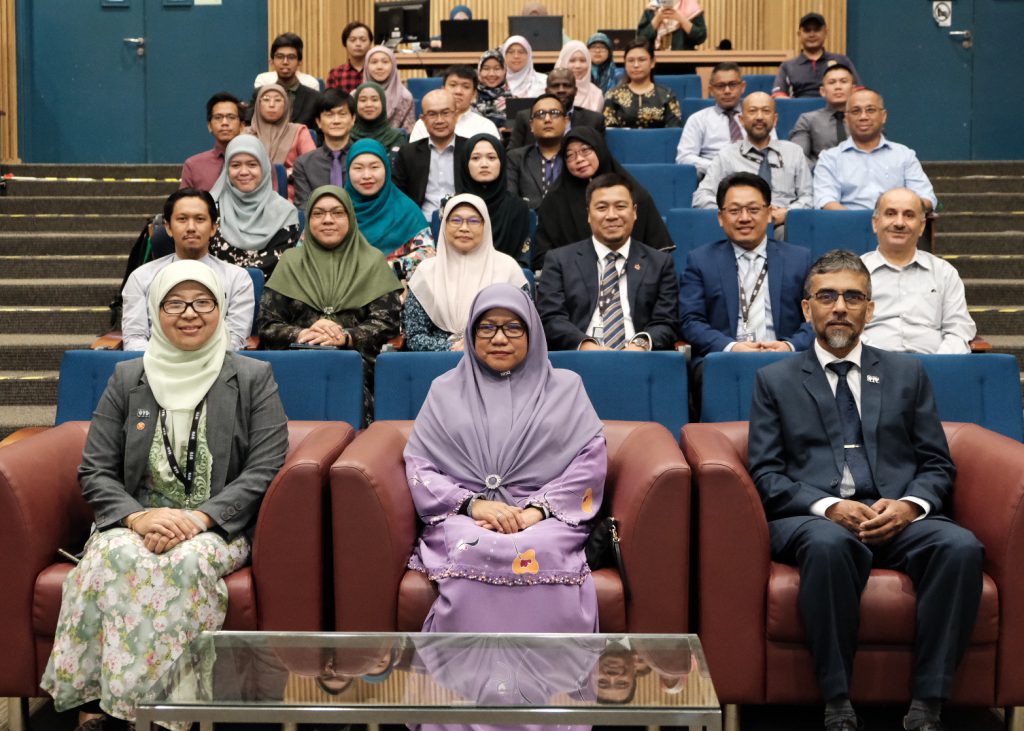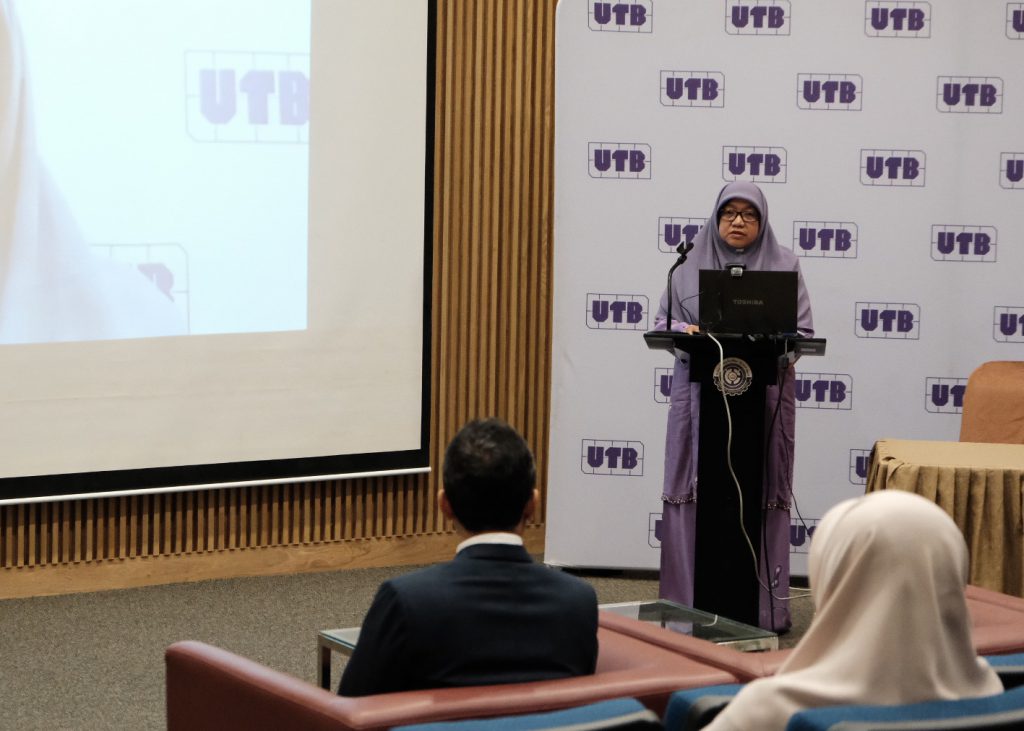Universiti Teknologi Brunei (UTB) organised the 2nd Brunei-Networked ASEAN Peat Swamp Forest Communities (BRU-NAPC) Dialogue Session under the ICT Virtual Organization of ASEAN Institutes (ASEAN IVO), National Institute of Information and Communications Technology (NICT). It was held both virtually and physically at the University’s Lecture Theatre 2, Library Complex.
Present as the Guest of Honour at the workshop was Yang Mulia Professor Dr Dayang Hajah Zohrah binti Hj Sulaiman, Vice-Chancellor of UTB.
The event began with an opening speech by Yang Mulia Dr. Wida Susanty binti Haji Suhaili, the Country Lead Bru-NAPC and Assistant Professor at UTB; followed by remarks from Yang Mulia Dr Hiroshi Emoto, ASEAN IVO Secretariat, NICT Japan.
In Dr Wida’s speech, she began by introducing how they started the research with Peatland projects in 2016 by engaging the Royal Brunei Fire Rescue. “The research project on peatland has elevated UTB to another level when one of the research deliverables transformed and won the 1st Best NGO in the King Saudi Arabia Award, and showcased in the ASEAN-US Science Prize for Women 2020 as the context for Brunei’s National Finalist”, shared Dr Wida.
According to the Country Lead Bru-NAPC, the project is one of the approved 2018 projects under ASEAN IVO funded by NICT, Japan that aims to deploy an IoT-based solution for peat swamp forest monitoring, targeting the environmental and agricultural issues where it plans to deploy, analyse and disseminate information using an IoT-based peat swamp forest monitoring system, especially on sustainability and at the same time engaging with the peat swamp forest communities for social innovation aspects.
“The dialogue session is one of the several works done to hopefully get the local and especially the audience to appreciate and gain a much insightful understanding of the needs to sustain and mitigate any forest fire to peatland areas.”
The event then proceeded with a remark by the Guest of Honour, where she highlighted that Peat swamp forests are the second most dominant forest type in Brunei and rich with species of plants and animals but it is still facing threats due to development, peat drainage and fires. She also stressed that the impacts of these threats to the peatland can be seen in the changes of climate, and drained peatland also increases the chances of peat fires thus releasing a huge amount of greenhouse gases. “UTB hopes to play a role in helping to mitigate such issue and to provide a solution in conserving the peatland ecosystem in Brunei through cross-cutting research projects that involve technology and biology.”
“I understand that this dialogue session is a platform where academics, research students, policy makers, and practitioners share and discuss their research findings and critical analysis on current issues on Peatland”, said Professor Dr Dayang Hajah Zohrah. Therefore she mentioned that through regular academic exchanges among not only scholars but also various experts from the Public and Private Sectors, this human network will contribute to the consolidation for mutual cooperation. She hopes this dialogue session will also bring impactful research outcomes to the society.
Carrying the theme Lesson Learned on Peatland within the Region, the event aimed at raising awareness on the best way forward to manage the Peatland area. Hence, the dialogue session brought together experts from local and regional organisations and universities as well as academicians from Japan to deliver their experiences on Peatland related areas into four main sessions on Understanding Peatland, Peatland Management, Adoption of Technology and International Best Practices.
The event was also attended by UTB principal officers, researchers and other relevant stakeholders.


